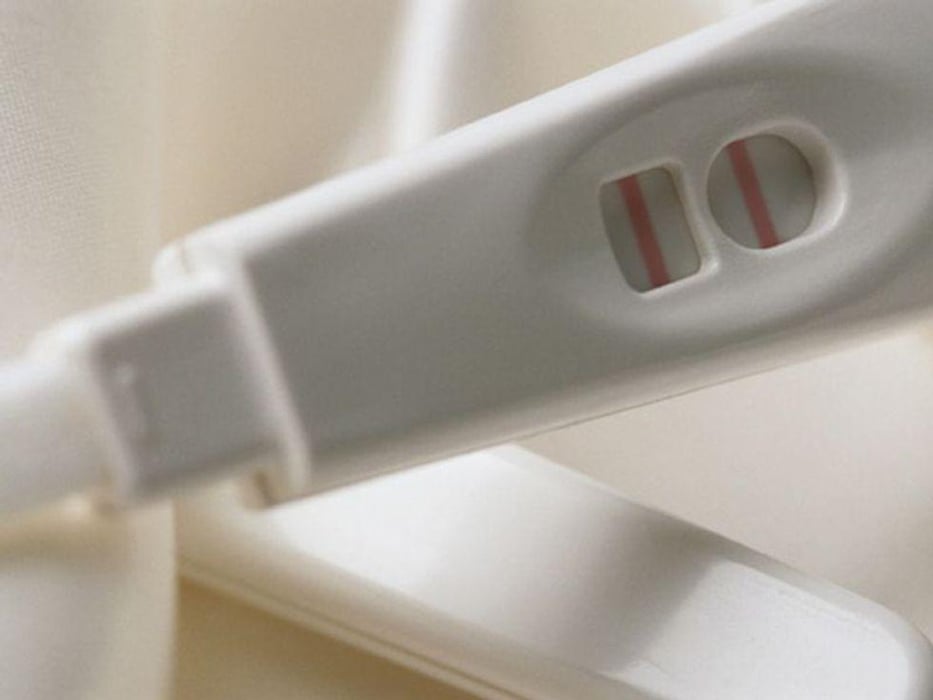When Are You Most Likely to Conceive? An Expert Explains ‘Fertile Windows’

When you’re trying to become pregnant, understanding when in your cycle you’re the most fertile is key to success.
Dr. Rebecca Flyckt, medical director of University Hospitals Fertility Center in Beachwood, Ohio, shares what you need to know about "fertile windows."
When are you most fertile?
What is a fertile window?
“A fertile window is the best time to attempt pregnancy during a given month,” Flyckt explained. “The fertile window can be predicted with confidence based on menstrual history and suspected time of ovulation.”
When do you ovulate?
According to the American College of Obstetricians and Gynecologists (ACOG), ovulation is the time in the menstrual cycle when a woman’s egg is released and able to be fertilized by sperm. That’s why knowing when you ovulate each month can help you maximize your chances of getting pregnant.
“Most women with a 28-day menstrual cycle ovulate around day 14,” Flyckt said. “Although the first half of the menstrual cycle is variable in length [and can even vary in the same woman from month to month], the luteal phase [time from ovulation to expected menses] is typically 14 days long.”
This means that ovulation begins about 14 days before the start of your next period. How long does ovulation last? The ACOG says it lasts for the entire time that the egg survives, which is about 12-24 hours.
What are the symptoms of ovulation?
While ovulation occurs approximately 14 days before your next period, the American Pregnancy Association says knowing the symptoms of ovulation can help you answer the question: how many days after your period do you ovulate? This is because your body goes through certain changes right after your period (and before ovulation) due to hormone shifts.
“Women often will note that their vaginal discharge will become more transparent and thinner and stretchier right before ovulation, and some women may experience mild cramping on one side at the time of ovulation,” Flyckt said.
The American Pregnancy Association says that other signs of ovulation may include:
- Light spotting
- A slight decline in basal (resting) body temperature right before ovulation
- Stomach bloating
- A soft, open wet cervix during ovulation
- Increased sex drive
- Tender breasts
- Sharpened sense of vision, taste or smell
How long does ovulation last?
“The fertile window begins about five days before ovulation and is open until one day after ovulation,” Flyckt noted.
This is because "sperm that have been deposited into the reproductive tract before ovulation can live for up to five days and fertilize an egg, but sex after ovulation is often too late to catch the fertile window," she continued. “This is important because many couples try to time sex for the moment of ovulation, when in fact it is the sex that occurs up to and during ovulation that is the most effective."
How do you calculate the fertile window?
Flyckt says there are a few ways to calculate your fertile window.
“If you have regular periods, subtract 14 days from your first day of the menstrual period and that is likely when you ovulate,” she advised. “You can then apply that to your upcoming period to target the probable ovulation day.”
Flyckt also mentioned using an app to track when you are the most fertile. “After tracking has occurred, the app will begin to calculate an average menstrual cycle length and a predicted time of ovulation about two weeks before the next period start is anticipated,” she said.
If you already know your average menstrual cycle length, you can also use a simple ovulation date calculator to calculate your fertile window.
The American Pregnancy Association says there are two other tools to help guide your fertile window calculations:
- Ovulation kits can determine the amount of luteinizing hormone in your body, which increases significantly about 12-36 hours before ovulation.
- Ovulation microscopes can show changes in the appearance of saliva that occur right before ovulation.
Tips for maximizing the fertile window
Flyckt said that couples who are trying to conceive don’t need to have sex every day of the fertile window.
“Every other day is fine and supported by good scientific data,” she explained. “Also, for women with regular periods, sex can be planned starting around cycle day nine [and then] every other day for one week. This pattern will likely catch the fertile window and doesn’t require any apps or ovulation kits.”
Flyckt also noted that if you are using an ovulation predictor kit, “begin testing on cycle day 10, with cycle day one being the first day of full flow menses [your period]. Follow the instructions on the kit for timing of intercourse.”
When to see your doctor
“If cycles are irregular and/or ovulation kits are not working within a few months, it is likely not a timing issue,” Flyckt explained. “Evaluation by a specialist can help get to the bottom of this."
SOURCE: Rebecca Flyckt, MD, division director, Reproductive Endocrinology and Infertility, University Hospitals Fertility Center, Beachwood, Ohio
Related Posts
Nintedanib Slows Decline in FVC in Autoimmune Disease-Linked ILD
FRIDAY, Feb. 24, 2022 (HealthDay News) -- For patients with progressive...
2016 to 2020 Saw Anxiety, Depression Increase Among Children
TUESDAY, March 15, 2022 (HealthDay News) -- From 2016 to 2020, increases were...
Rare Cases of Monkeypox Diagnosed in Britain
TUESDAY, May 17, 2022 (HealthDay News) -- Four men in England have been infected...
Posoleucel Efficacious for Stem Cell Transplant Recipients
TUESDAY, Jan. 17, 2023 (HealthDay News) -- For recipients of allogeneic...
